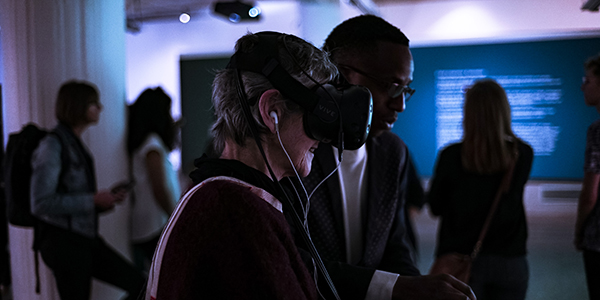Machines will not replace humans, yet!
- Wits University
Expert calls for development of a new kind of AI that is provably beneficial to humans
While the advances made within the field of Artificial Intelligence (AI) have made human life easier, the threat of it taking over has been a topical issue amongst experts since the 1950s when it was first developed.
But a Professor of Computer Science at the University of California, Berkeley, Stuart Russell said there was currently no indication that human life would be completely replaced by machines.
Russell was speaking under the theme “Provably Beneficial Artificial Intelligence”, at the 71st Dr Bernard Price Memorial lecture that was hosted virtually by the South African Institute for Electrical Engineers (SAIEE) in partnership with Wits.
The lectures are named after Dr Price for his contribution as an engineer to the South African power supply industry. As a technical expert who had a passion for the sciences, Price established the Bernard Price Institute for Geophysical Research and the Bernard Price Institute for Palaeontological Research at Wits.
Humans capable of AI?
At the lecture, Russell explored the possibility of what the creation of AI systems that could quickly learn to outperform human beings in tasks where the human intellect is relevant (General Purpose AI), would look like for the human race.
Should computer scientists be able to create general purpose AI systems, it would be the most significant technological event in the history of humans and one of the positive impacts of this would be the improvement of the global living standards.
“Because general purpose AI systems would be extremely low-cost and can be multiplied as many times as you want, they could provide high quality individualised health care, education for every child and could also be used to accelerate the rate of progress in science,” said Russell.
He however believes that this kind of technology is not available nor is it imminent in the near future despite suggestions that it currently exists or is being developed.
The training of deep learning networks from large amounts of data, which is currently the popular approach in AI, was also unlikely to create general purpose AI systems.
And because these deep networks were essentially circuits rather than computer programs, they were restrictive and required large amounts of pages even for simple pieces of knowledge that could be written down on a single page.
Russell explained, “We still have a long way to go before reaching human level artificial intelligence. We do not really know how to build systems that actually understand language as opposed to being able to produce the appearance of being able to understand language as current systems do.”
The path to provably beneficial AI
When computer scientist Alan Turing developed AI, he had predicted that humans would lose control over machines that would eventually exceed human capabilities. But Russell argued that Turing was wrong to think that doom was inevitable.
This is despite the development of apps that have the ability to predict and manipulate the preferences of users.
Russell called for the development of new models where machines are beneficial to achieve the objectives of human beings.
Based on these models, machines would rely on a mathematical framework that would give them access to these objectives.
"That is one possible answer to Turing’s concern that we actually have to rebuild AI on a completely different foundation. We have to get away from this idea that we begin with a fixed objective that the algorithm is going to optimise,” he explained.
According to Russell, this different approach to AI, where systems know that they do not know what the objectives of humans are, the idea of provably beneficial AI being a desirable form of technology can be proved.
While computer scientists are looking at these systems of the future that he described as better technology, Russell warned about the problems that could arise where these provably beneficial methods could be misused for evil motives or overused where AI systems run successfully to an extent where humans would end up being “infantilised” and “feeble”.


